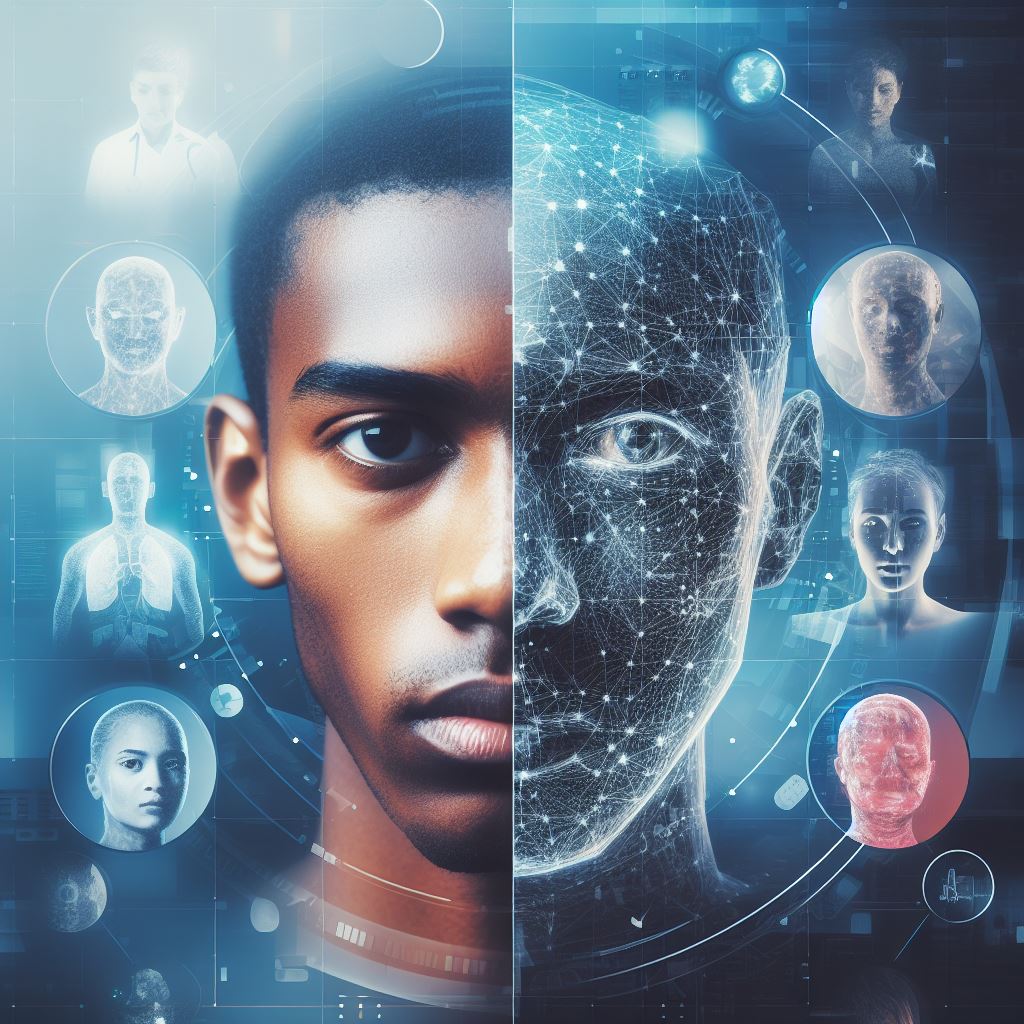Introduction
Coding plays a crucial role in healthcare, revolutionizing medical practices and improving patient outcomes.
Healthcare coding refers to the system of assigning standardized codes to medical diagnoses and procedures.
Importance of coding in healthcare
Coding is essential in healthcare. It helps to improve patient care, medical research, and health policy.
Definition of healthcare coding
Healthcare coding is the process of assigning codes to medical diagnoses, procedures, and services. These codes are used to communicate information between healthcare providers, insurance companies, and government agencies.
Purpose of the blog post
This blog post will discuss how developers impact medicine through coding. We will discuss specific examples of how coding is being used to improve healthcare, and we will encourage developers to consider a career in this field.
The purpose of this blog post is to explore how developers have a significant impact on the field of medicine.
Role of developers in healthcare
Overview of the role
Developers play a crucial role in transforming the healthcare industry through their technical expertise and innovative solutions.
They are responsible for creating, maintaining, and optimizing various software applications and systems used in healthcare settings.
Their role involves analyzing user requirements, designing user-friendly interfaces, and developing robust and secure healthcare software.
Importance of developers in healthcare systems
Developers contribute significantly to the improvement of healthcare systems by enhancing efficiency, accuracy, and patient outcomes.
They enable healthcare providers to access and manage patient data effectively, leading to better diagnosis and treatment planning.
Developers also play a vital role in ensuring the interoperability of different healthcare systems, allowing seamless data exchange between providers and institutions.
Examples of areas where developers contribute to healthcare
- Electronic Health Records (EHR): Developers design and develop EHR systems that enable healthcare providers to maintain patient records digitally.
- Telemedicine: Developers create telemedicine platforms that facilitate remote consultations, improving access to healthcare for individuals in remote areas.
- Medical Imaging: Developers build sophisticated imaging software that helps radiologists analyze and interpret medical images accurately.
- Health Monitoring Apps: Developers design and develop mobile apps that enable individuals to track their vital signs and monitor their health conditions.
- Data Analytics: Developers leverage data analytics tools to analyze large volumes of healthcare data and derive meaningful insights for decision-making.
- Artificial Intelligence (AI): Developers integrate AI algorithms into healthcare systems to assist in early diagnosis, personalized treatment, and predictive analytics.
- Patient Engagement: Developers create patient portals and mobile apps that engage patients, provide them with essential healthcare information, and facilitate communication with healthcare providers.
- Blockchain: Developers leverage blockchain technology to enhance data security and privacy in healthcare by providing immutable and decentralized patient records.
- Clinical Decision Support Systems (CDSS): Developers develop CDSS that assist healthcare professionals in making evidence-based clinical decisions.
- Healthcare IoT: Developers work on IoT solutions that connect devices, sensors, and wearables to collect and transmit health-related data for monitoring and analysis.
In essence, developers play a pivotal role in revolutionizing healthcare by creating innovative software solutions and systems.
They contribute to improving efficiency, accuracy, and patient outcomes in various areas of healthcare, ranging from electronic health records to AI-enabled diagnostics.
Their expertise and contributions are instrumental in shaping the future of medicine.
Tech Consulting Tailored to Your Coding Journey
Get expert guidance in coding with a personalized consultation. Receive unique, actionable insights delivered in 1-3 business days.
Get StartedRead: Coding Bootcamps: Fast-Tracking Tech Careers in the USA
Electronic Health Records (EHR) systems
Explanation of EHR systems
EHR systems are comprehensive electronic records of patients’ medical history and health information.
They include data on diagnosis, treatment, prescribed medications, allergies, lab results, and more.
EHRs can be accessed by authorized healthcare providers, ensuring easy and secure sharing of information.
Role of developers in developing and maintaining EHR systems
- Developers play a crucial role in designing, creating, and continuously improving EHR systems.
- They collaborate with healthcare professionals to understand their needs and incorporate necessary features and functionalities.
- Developers ensure that EHR systems are user-friendly, secure, and comply with healthcare regulations.
- They also regularly update the systems to keep up with advancements in technology and address any vulnerabilities.
Impact of EHR systems on patient care and healthcare operations
- Improved efficiency: EHR systems streamline healthcare operations by digitizing and automating various tasks.
- Easy access to information: Healthcare providers can quickly retrieve patient data, leading to faster diagnosis and treatment.
- Better coordination: EHRs facilitate communication and collaboration among different healthcare professionals involved in a patient’s care.
- Reduced errors: Electronic records minimize the chance of errors caused by illegible handwriting or missing information.
- Enhanced patient safety: EHRs include clinical decision support systems that provide alerts and reminders for potential drug interactions or allergies.
- Increased data accuracy: EHR systems eliminate the need for manual data entry, reducing the risk of data entry errors.
- Improved research capabilities: Aggregated data from EHRs can be analyzed to identify trends, contribute to medical research, and enhance healthcare outcomes.
- Better patient engagement: EHRs allow patients to access their own records, empowering them to participate in their healthcare decisions.
EHR systems have revolutionized healthcare delivery by digitizing patient information and streamlining medical processes.
Developers are instrumental in creating and maintaining these systems, ensuring their usability, security, and compliance.
The impact of EHRs on patient care and healthcare operations has been monumental.
These systems have improved efficiency, facilitated information accessibility, and enhanced coordination among healthcare professionals.
By reducing errors, ensuring patient safety, and increasing data accuracy, EHRs have significantly contributed to better healthcare outcomes.
Additionally, EHRs have opened avenues for medical research and empowered patients to actively engage in their own healthcare.
As technology continues to advance, it is crucial for developers to constantly innovate and improve EHR systems to further enhance the quality of healthcare provided to patients.
Read: Hospital Coding Audits: How They Work and Why
Medical imaging and diagnostics
Introduction to medical imaging and diagnostics
Medical imaging and diagnostics play a crucial role in the field of healthcare. They enable healthcare professionals to visualize and analyze internal structures and functions of the human body.
These technologies greatly aid in early detection, diagnosis, and treatment planning.
Build Your Vision, Perfectly Tailored
Get a custom-built website or application that matches your vision and needs. Stand out from the crowd with a solution designed just for you—professional, scalable, and seamless.
Get StartedRole of developers in creating and improving medical imaging technologies
Developers have been instrumental in the creation and continuous improvement of medical imaging technologies.
They collaborate with healthcare professionals to develop innovative solutions that enhance accuracy, efficiency, and accessibility of medical imaging tools.
Developers use their expertise to design and develop software applications and algorithms that process and analyze medical images.
They work closely with radiologists and other medical specialists to understand their needs and challenges, and then create solutions that address these issues.
Their contributions have revolutionized the way medical imaging is performed.
Advancements made by developers in medical diagnostics
Developers have made significant advancements in the field of medical diagnostics.
They have developed software tools and applications that automate the analysis of medical images, leading to faster and more accurate diagnoses.
These advancements have improved patient outcomes and reduced healthcare costs.
One area where developers have made notable advancements is in computer-aided detection and diagnosis (CAD).
CAD systems use algorithms to analyze medical images and highlight areas of concern. This helps radiologists in identifying abnormalities that may require further investigation.
CAD has proven to be a valuable tool in detecting early signs of diseases such as cancer.
Developers have also contributed to the improvement of imaging modalities such as magnetic resonance imaging (MRI) and computed tomography (CT).
They have developed techniques to enhance image quality, reduce scan times, and minimize radiation exposure. These advancements have made these imaging technologies safer and more accessible to patients.
Furthermore, developers have played a significant role in the integration of medical imaging with other healthcare systems.
Optimize Your Profile, Get Noticed
Make your resume and LinkedIn stand out to employers with a profile that highlights your technical skills and project experience. Elevate your career with a polished and professional presence.
Get NoticedThey have developed software applications that allow seamless sharing and integration of medical images and patient data across different healthcare facilities and systems.
This has improved the efficiency of healthcare delivery and enabled better collaboration among healthcare professionals.
In fact, developers have had a profound impact on medical imaging and diagnostics.
Their expertise and innovation have led to the creation of advanced medical imaging technologies and improved diagnostic capabilities.
Through their continuous efforts, developers continue to drive advancements in the field, contributing to better healthcare outcomes for patients worldwide.
Read: Government and Coding: How Tech Improves Services

Telemedicine and virtual healthcare
Explanation of telemedicine and virtual healthcare
Telemedicine refers to the practice of providing healthcare services remotely using technology, such as video conferencing or phone calls.
It allows patients to consult with healthcare professionals without having to be physically present at a medical facility.
Virtual healthcare encompasses a broader scope, including telemedicine, as it also includes other digital health services like remote monitoring and health education.
Role of developers in building telemedicine platforms and applications
Developers play a crucial role in building telemedicine platforms and applications that enable the delivery of remote healthcare services.
They are responsible for creating user-friendly interfaces that facilitate seamless communication between patients and healthcare providers.
Developers also integrate various features like appointment scheduling, medical records management, and secure messaging to enhance the overall telemedicine experience.
Benefits and challenges of telemedicine from a developer’s perspective
From a developer’s perspective, telemedicine offers several benefits. Firstly, it expands access to healthcare, particularly for patients in remote areas or those with limited mobility.
Developers take pride in contributing to improving healthcare accessibility.
Secondly, telemedicine platforms allow for efficient and streamlined healthcare delivery, reducing waiting times and optimizing operational workflows.
However, developers also face challenges when building telemedicine platforms. One significant challenge is ensuring data security and privacy.
Developers must implement robust security measures to protect patients’ personal health information and comply with privacy regulations like HIPAA.
Additionally, the interoperability of healthcare systems poses a challenge, as developers need to integrate telemedicine solutions with existing healthcare infrastructure seamlessly.
In short, telemedicine and virtual healthcare have revolutionized the way healthcare services are delivered.
Developers play a vital role in building telemedicine platforms that facilitate remote consultations, improving access to healthcare and enhancing overall patient experience.
While there are benefits in terms of expanded access and streamlined workflows, developers must also address challenges related to data security and system interoperability.
Read: Best Coding Apps to Supplement Your Coding Classes
Data Analytics and Health Informatics
Importance of Data Analytics in Healthcare
- Data analytics plays a crucial role in healthcare by providing insights and improving decision-making processes.
- It helps in identifying trends, patterns, and correlations in large volumes of healthcare data.
- By analyzing this data, healthcare professionals can identify potential risks, anticipate outbreaks, and develop preventive measures.
- Data analytics also helps in identifying inefficiencies in healthcare systems, leading to cost savings and improved patient outcomes.
- It enables personalized medicine by analyzing patient data to determine the most effective treatment plans.
Role of Developers in Developing and Maintaining Health Analytics Platforms
- Developers play a critical role in building and maintaining health analytics platforms.
- They create algorithms and models that can process and analyze vast amounts of healthcare data.
- Developers collaborate with healthcare professionals to understand their needs and translate them into software solutions.
- They ensure that the platforms are user-friendly, secure, and comply with privacy regulations.
- Developers also regularly update the platforms to incorporate new technologies and improve functionality.
Impact of Data Analytics on Medical Research and Treatment Methodologies
- Data analytics has revolutionized medical research by enabling data-driven discoveries and insights.
- It allows researchers to analyze large datasets quickly and efficiently, leading to faster research outcomes.
- Data analytics helps in identifying risk factors, predicting disease progression, and improving treatment outcomes.
- By analyzing real-time data from patient monitoring devices, healthcare providers can make informed decisions.
- It enables evidence-based medicine, where treatment decisions are based on objective data rather than subjective judgment.
Data analytics has the potential to improve healthcare quality, efficiency, and patient outcomes significantly.
Developers are instrumental in developing and maintaining analytics platforms that enable healthcare professionals to leverage the power of data.
Challenges faced by developers in healthcare
Unique challenges in healthcare coding
- Ensuring accurate and secure handling of sensitive patient data.
- Adapting to complex and constantly evolving healthcare regulations and standards.
- Creating solutions that integrate seamlessly with existing healthcare systems.
- Maintaining the performance and reliability of software in high-stakes medical environments.
- Meeting the unique needs and workflows of healthcare professionals.
Regulations and compliance issues in healthcare development
- Complying with strict privacy regulations such as HIPAA in handling patient information.
- Keeping up with changing regulations and ensuring software meets the latest compliance requirements.
- Implementing robust security measures to protect against potential data breaches.
- Maintaining audit trails and documentation to satisfy regulatory requirements.
- Ensuring interoperability with other healthcare systems and electronic health records (EHRs).
Collaboration with healthcare professionals
- Understanding the unique needs and workflows of healthcare professionals to develop intuitive solutions.
- Communicating effectively with medical experts to accurately translate their requirements into code.
- Addressing concerns and incorporating feedback from healthcare professionals during the development process.
- Bridging the gap between the technical and medical domains to create effective solutions.
- Ensuring continuous collaboration and feedback loops to refine and improve healthcare software.
In general, developers face a multitude of challenges in healthcare coding and development.
From handling sensitive patient data to complying with complex regulations, their role is crucial in ensuring the effectiveness and security of healthcare software.
Collaboration with healthcare professionals is also essential to meet the unique needs of the industry.
By addressing these challenges, developers play a significant role in shaping the future of healthcare and improving patient care.
Conclusion
The role of developers in healthcare is crucial, bringing innovation and efficiency to a traditionally complex industry.
Developers have the power to make a significant impact on patients’ lives and contribute to improving healthcare outcomes.
As technology continues to advance, coding skills will play an increasingly vital role in shaping the future of healthcare.
Developers have the potential to revolutionize medical treatments, patient care, and overall healthcare operations.
With their expertise, developers can address challenges, streamline processes, and enhance the quality of healthcare services.
Developers are an indispensable force in the healthcare industry. By embracing coding opportunities, developers can drive innovation, improve patient outcomes, and transform healthcare as we know it.




